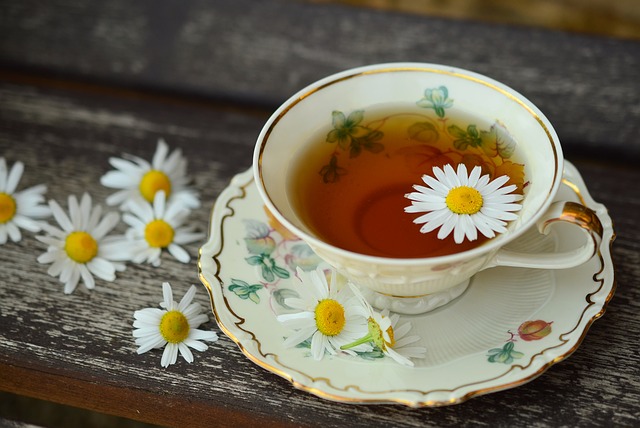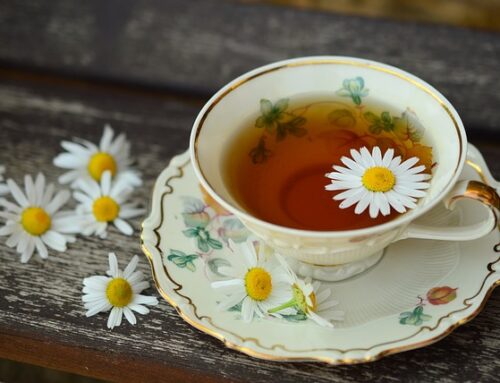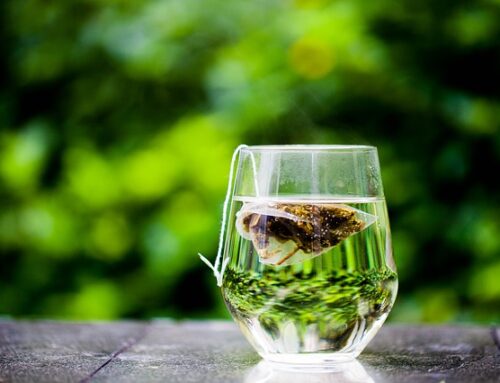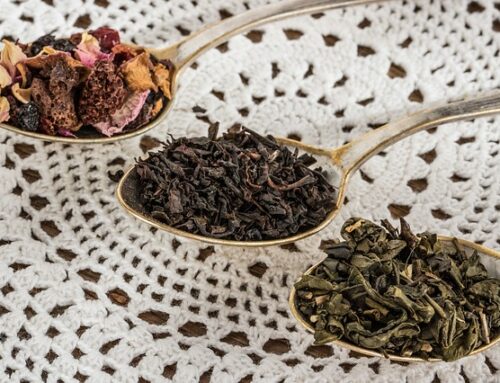While I’m a fan of herbal tea, I would avoid chamomile tea during the day, especially when I’m in the midst of work and desperately need to stay awake. For some reasons, chamomile tea seems to have a sedative effect on me and lull me into sleep.
The opposite is true when I call an end to the day. Chamomile tea has long been my favorite cup of bedtime tea, thanks to its sleep-inducing effect. Even on the most stressful days, a cup of chamomile tea almost always did the trick of helping me to doze off.
But is chamomile tea actually a sleep-inducing herbal tea? Or am I just feeling relaxed from the warmth of a hot cup of beverage? Before we jump to a hasty conclusion, let’s dive deeper into the facts on chamomile.
What Is Chamomile?
Chamomile is an ancient herb that has been used by civilizations for thousands of years. The chamomile is a daisy-like plant that grows naturally in Europe, Northern region of Africa and the cooler parts of Asia. The flowers, which is characterized by the white petals and floral fragrance, are prized for its medicinal properties. (1)
Generally, there are two major variants of chamomile, the German chamomile, and Roman chamomile. Both types of chamomiles are popular commercially and known for its sedative qualities. However, there are differences in the chemical properties between both types, which translates into a specific use for each, especially in aromatherapy. (2)
As for chamomile tea, both Roman and German chamomile will deliver the soothing effect that makes sleep easy.
What Makes Chamomile Tea Sedating?
If science has an answer to the sedative property of chamomile, it will be the terpenoids and other chemical compounds present in the plant. Terpenoids are organic compounds that are found in plants and are associated with medical benefits. (3)
Of course, scientific theories on how chamomile tea need to be proven by studies. A clinical trial conducted by the Kashan University of Medical Sciences in Iran measures the effect of chamomile on the sleep quality of elderly participants. The result is encouraging where the group receiving chamomile extract exhibits a significant increase in sleep quality. (4)
Another study was performed in Taiwan where post-partum women suffering from sleep issues are prescribed with chamomile tea for 2 weeks. The group drinking chamomile tea has significantly lesser sleep issues compared to the control group. (5)
However, chamomile seems to have limited effects on people with chronic insomnia. A 28 days study on patients with chronic insomnia seems to harbor mixed results, especially when it comes to sleep quality. (6)
It helps to have more scientific studies on the effect of chamomile on sleep. But early data seems to indicate that the merit of chamomile is true to an extent. The fact that chamomile contains no caffeine also makes it a perfect bedtime tea.
Is The ‘Tea Ritual’ Inducing Sleep?
I know there are other opinions regarding tea ritual and how it is linked to a good night of sleep. Some articles highlight the act of brewing tea and how it can be a calming process. Also, the sensation of hot beverage warming up your stomach is claimed to be relaxing.
As a tea drinker, I agree to the points argued.
With that said, I wanted to highlight my experience of drinking chamomile. When I’m drinking chamomile tea at home, I use tea bags instead of loose leaves. This means I don’t spend much time brewing or infusing, in a sense.
All I did was pour hot water onto the tea bag. It’s a process that takes lesser than 1 minute, and it doesn’t feel as grounding as a full-blown tea ritual. Also, there were occasions when I enjoyed a pot of infused chamomile flowers at cafes, but the effort in making the tea was done by others.
Nevertheless, I feel the usual drowsiness after barely 30 minutes.
It feels good to feel the warmth of herbal tea spreading through your body. But I believe there’s more to tea ritual in the sedative effects of chamomile.
Final Thoughts
Personally, chamomile tea has a pronounced effect in casting sleep over my mind. Regardless of whether it’s the workings of terpenoids, or from the rituals of drinking tea, it never fails to cause drowsiness after moments of drinking.
If you’re drinking chamomile tea, ensure that you’re not driving or operating heavy machinery immediately. Wait for the drowsy spell to pass before doing so.
Now that I’m done with this article, I’m all clear for a cup of chamomile tea. Does chamomile tea help you to sleep? Share your thoughts in the comment below.
Related:
- Best Organic Chamomile Tea Brand For Sleep
- Best Decaf Green Tea
- Best Bedtime Tea For Better Sleep
- Best Caffeine-Free Herbal Tea For Sleep And Wellness
- Best Organic Lavender Tea For Better Sleep






Leave A Comment